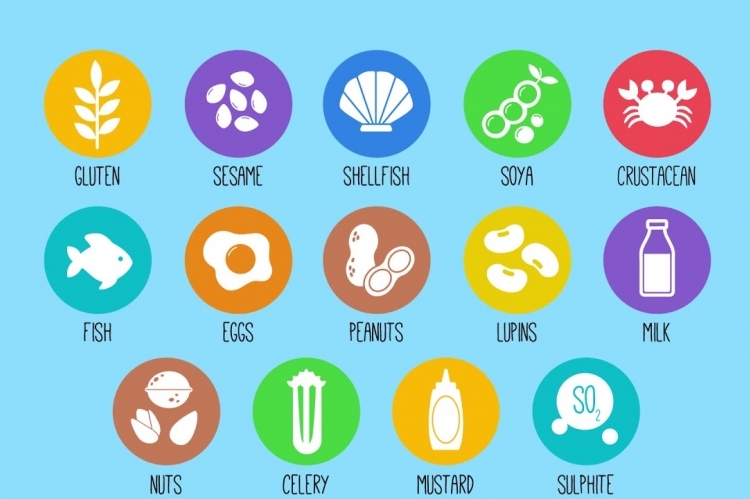Allergen Testing - General Context
CellMadeTM leads the way in allergen testing with our state-of-the-art toolbox, tailored for identification and quantification of allergens in food.
An allergen is a substance capable of sensitizing an organism and causing abnormal symptoms when reintroduced. Food allergies represent an important health problem in developed countries. Undeclared allergens as contaminants in food products pose a major risk for sensitized people. In highly sensitized individuals, even the intake of very small amounts of allergens can provoke digestive disorders, respiratory symptoms, skin reactions or life-threatening reactions like anaphylactic shock. Reliable allergen detection methods for food allergens are necessary to improve consumer protection.
By combining real-time PCR and ELISA techniques, CellMadeTM Laboratories is able to measure foodstuffs allergens as listed in European Commission Regulation 828/2014 defining thresholds for products declared gluten-free (≤20 mg/kg) and products with very low gluten content (≤100 mg/kg) and European Commission Regulation 1169/2011 specifying the labelling rules for 14 potential allergenic ingredients according to European Commission Directive 2007/68/EC.
Real-time PCR and ELISA methods have been developed that can detect allergens in finished products at very low levels, generally in the low parts per million (ppm) range. Both real-time PCR and ELISA provide a quick and definitive result that allows food manufacturers to identify contaminated products before they are released. Allergen testing can also guide the food manufacturer to identify areas of processing facilities that need to be decontaminated.
ELISA methods detect the actual allergen protein by binding antibodies to the allergen and then using an enzyme-linked conjugate to create a colorimetric change that can be measured. Nevertheless, some matrices interfere with the ELISA methods or can cause cross-reactivity as seen between different types of nuts. ELISA methods are not the most suitable for cooked or heated products because the allergen proteins are denatured or broken down and no longer detectable, but may still cause problems to sensitive individuals!
PCR methods are more sensitive and detect allergen-specific DNA sequences, can be used in raw and cooked products and are not affected by the heating process because DNA typically remains intact after being exposed to the cooking temperatures of most foods. PCR is not subject to typical interferences that inhibit ELISA-based methods because the allergen-specific DNA is purified and exempt from inhibitors before PCR analysis begins. Nevertheless, PCR cannot be used on all products. For example, oils, milk, or egg whites cannot be tested by PCR because they do not contain allergen-specific DNA.
CellMade Laboratories performs allergen testing using both real-time PCR and ELISA-based technologies. Raw, finished and cooked products can be analyzed for common allergens including milk, egg, fish, gluten, soy, and various types of nuts.

| Référence | Type | Document |
|---|---|---|
| CM-ALG-1 | Application Note | Guidance food allergen management for food manufacturer |
| CM-ALG-2 | Application Note | Food industry guide to allergen labeling |
| CM-ALG-3 | Application Note | VITAL scientific expert panel recommendations |
| CM-ALG-4 | Application Note | Voluntary Incidental Trace Allergen Labelling - VITAL program |
| CM-ALG-5 | Application Note | Precautionary allergen labeling |
| Référence | Type |
